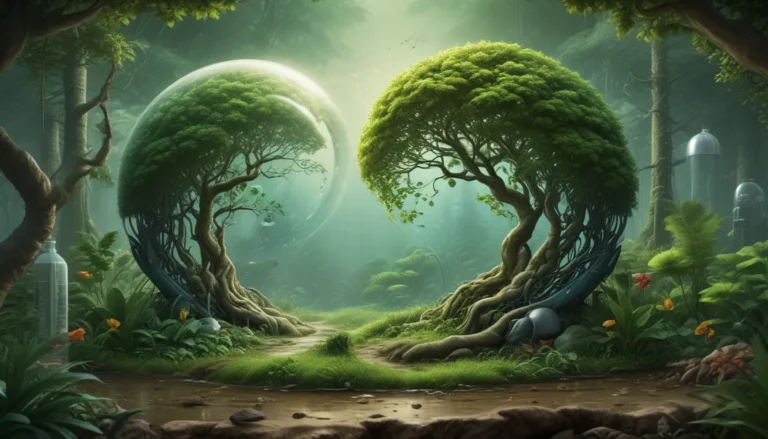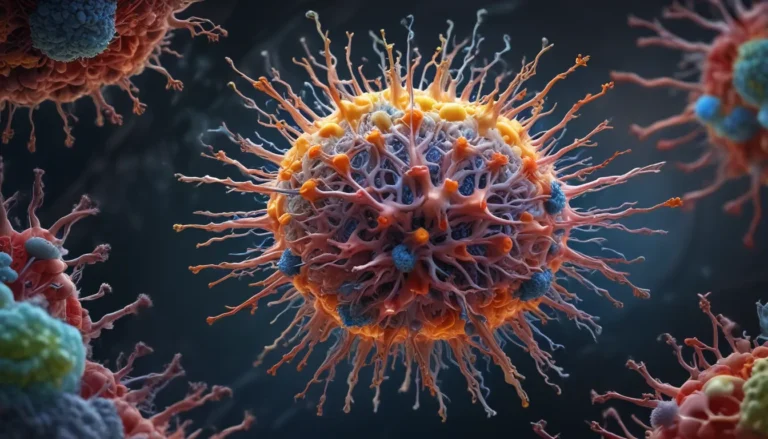A Note About Images: The images used in our articles are for illustration purposes only and may not exactly match the content. They are meant to engage readers, but the text should be relied upon for accurate information.
Welcome to the captivating world of physiology, where the wonders of the human body are brought to life through intricate processes and astonishing capabilities. From the complex cardiovascular system to the resilient cells that make up our tissues, physiology provides a profound insight into how living organisms function and adapt to their environment. In this article, we will explore 19 astounding facts about the human body that will deepen your appreciation for the incredible complexity of our physiology and leave you in awe of its mysteries.
The Marvelous Human Body
The human body is a fascinating marvel, composed of over 37 trillion cells that work tirelessly to maintain our overall health and functioning. Each cell plays a specific role in our biological processes, contributing to the intricate balance that keeps us alive and well. From the powerful heart that can pump about 2,000 gallons of blood every day to the brain that generates a staggering 70,000 thoughts daily, our bodies are truly remarkable machines that never cease to amaze.
- The liver, one of the body’s most resilient organs, can regenerate itself even after losing up to 75% of its mass, showcasing its remarkable ability to heal and recover.
- Iron, an essential mineral in our bodies, is abundant enough to make a small nail, highlighting the importance of this vital nutrient for our overall health and well-being.
- The femur, the longest and strongest bone in the human body, enables us to walk, run, and support our weight, showcasing the incredible structural support our skeleton provides.
- Our skin constantly renews itself, shedding about 600,000 particles every hour, contributing to the dust in our environment and demonstrating the dynamic nature of our largest organ.
Exploring the Intricacies of Physiology
As we delve deeper into the world of physiology, we uncover even more astonishing facts that shed light on the complexity and adaptability of the human body. From the small intestine’s impressive length of approximately 22 feet to the incredible sensory capabilities of our nose and eyes, each aspect of our physiology showcases the incredible design and functionality of our biological systems.
- The cornea, the transparent outer layer of the eye, is the only part of the body without a blood supply, receiving oxygen directly from the air to maintain its clarity and function.
- Our bodies produce enough heat in 30 minutes to boil half a gallon of water, highlighting the energy-intensive processes that take place within us to sustain life.
- The human nose can detect about 1 trillion different smells, showcasing the remarkable olfactory capabilities that enrich our sensory experiences and enhance our perception of the world.
- Water, essential for our survival, makes up approximately 60% of the human body, playing a vital role in various biological processes and maintaining our overall health and well-being.
Unveiling the Secrets of Physiology
From the intricate muscles in our hands to the astonishing amount of DNA within our cells, every aspect of our physiology contributes to the seamless functioning of our bodies and the intricate processes that sustain life. The pituitary gland, often referred to as the “master gland,” plays a crucial role in regulating hormone secretion and maintaining hormonal balance, showcasing the interconnectedness of our endocrine system and its impact on our overall health.
- Our bodies have enough DNA to stretch from the Earth to the Sun and back over 600 times, underscoring the vast amount of genetic information that determines our unique traits and characteristics.
- The human skeleton renews itself entirely every 10 years, undergoing a constant process of remodeling to replace old bone tissue with new tissue and maintain structural integrity.
- With over 600 muscles in the human body, we are equipped with a versatile and intricate network of muscles that enable movements, stability, and various physiological functions essential for our daily activities.
Embarking on a Journey of Discovery
In conclusion, the field of physiology offers a captivating exploration of the wonders of the human body, providing a deeper understanding of how our biological systems function and adapt to their environment. Whether you are a student of biology or simply curious about the intricacies of human physiology, delving into this fascinating field promises to be an enlightening and awe-inspiring journey. By unraveling the secrets of physiology, we not only gain a greater appreciation for the marvels of the human body but also pave the way for advancements in healthcare and medical treatments that benefit us all.
FAQs
-
What is physiology?
Physiology is the branch of biology that focuses on the study of how living organisms function, including the physical and chemical processes that occur within cells, tissues, and organs. -
How is physiology different from anatomy?
Anatomy is the study of the structure of living organisms, while physiology is concerned with understanding how those structures function and interact with each other. -
Why is studying physiology important?
Studying physiology helps us understand the mechanisms behind various bodily functions, enabling advancements in healthcare, disease prevention, and the development of new treatments and therapies. -
What are some key areas of physiology?
Physiology covers a wide range of areas, including cardiovascular physiology, neurophysiology, respiratory physiology, endocrinology, and reproductive physiology, among others. -
How does physiology contribute to medical research?
Physiological research provides insights into the normal functioning of the body, allowing scientists to identify abnormalities and develop targeted interventions for various diseases and conditions. -
Can I pursue a career in physiology?
Absolutely! A career in physiology can lead to various paths, including research, teaching, clinical practice, and pharmaceutical development. -
Are there any groundbreaking discoveries in the field of physiology?
Yes, throughout history, numerous groundbreaking discoveries have been made in physiology, such as the discovery of insulin, the elucidation of the structure of DNA, and the development of organ transplantation techniques. -
How can I learn more about physiology?
You can start by taking courses in biology and human anatomy at university or exploring online resources, textbooks, and scientific journals dedicated to physiology.
Embark on a journey of discovery and unravel the mysteries of physiology to deepen your appreciation for the wonders of the human body. Join us as we explore the intricacies of life and celebrate the remarkable complexity of our physiology.




